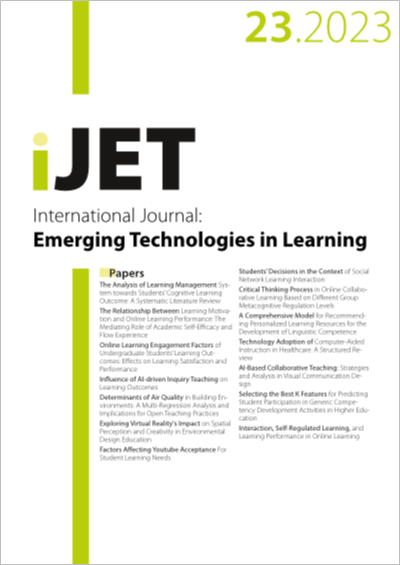Determinants of Air Quality in Building Environments: A Multi-Regression Analysis and Implications for Open Teaching Practices
DOI:
https://doi.org/10.3991/ijet.v18i23.44803Keywords:
open teaching methodologies, building environment, multi-regression environmental analysis, air quality index, student-centric pedagogical progression, energy application engineeringAbstract
In the ever-evolving educational milieu, the integration of innovative teaching methodologies is increasingly crucial to meet the changing needs of modern learners. This research meticulously explores the application of open teaching practices in the fields of building environment and energy application engineering. Through an in-depth examination of multi-regression data pertaining to various environmental factors, this study reveals significant correlations and patterns that are relevant to both educators and environmental specialists. Emphasis is placed on the student-centric ethos of this approach, combining the dual concepts of environmental science and pedagogical progression. The relationship between environmental variables, such as PM2.5, PM10, temperature, and humidity, and the air quality index (AQI) is rigorously analyzed. Such analysis underscores the educational improvements brought about by open teaching strategies. The presented findings not only offer nuanced insights into how the aforementioned variables influence air quality but also highlight the benefits and potential of open teaching methodologies in creating a more interactive and enlightening academic environment.
Downloads
Published
How to Cite
Issue
Section
License
Copyright (c) 2023 Nan Zhang (Submitter); Ding Ding, Xiurong Si, Tiejian Zhang, Feng Chen, Yiliang Liu, Zhengzheng Niu

This work is licensed under a Creative Commons Attribution 4.0 International License.



